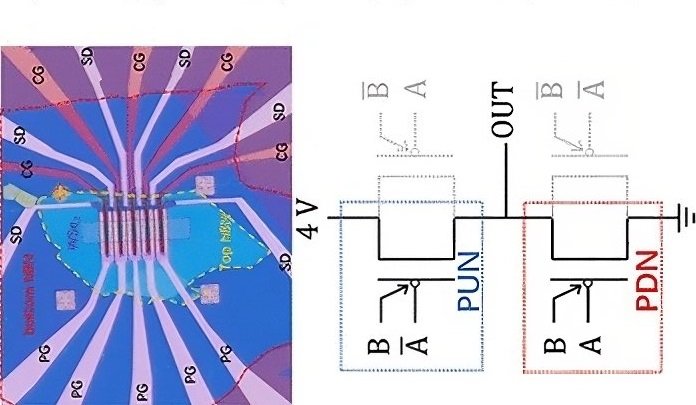
Have you ever thought about how fast technology is growing?
All our gadgets, from smartphones to gaming consoles, depend on computing power.
Now, scientists are trying to make these devices even faster and smarter, similar to how our brains work!
A professor named Jean Anne Incorvia and her team at the Cockrell School of Engineering are doing just that.
They have published two exciting studies that could shape the future of computers.
In the first study, they focused on improving our current technology. Inside the chips that power your devices are tiny parts called transistors. These transistors work like gates and help interpret digital signals.
Usually, they can only conduct either electrons or “holes” (spaces where electrons move around), but not both.
What this team did was create transistors that can handle both electrons and holes.
This means fewer transistors are needed for the same job, freeing up space or making the device more powerful.
These transistors are made from super thin 2-D materials, which naturally have this special property, but they needed some tweaks to work effectively. The team was able to build some key circuits using only these improved transistors.
“By using these 2-D materials and scaling them, we could cut the number of transistors we need in our circuits in half,” Incorvia said. Now, they’re working on making these devices smaller and using less power to make them practical for use in everyday tech.
The second study takes a leap into the future. The team built a new kind of artificial neuron, which in our brains, sends information between cells. They used magnetic materials to create a device that reacts unpredictably, like how our brains work.
This unpredictability helped the artificial neurons perform better in recognizing blurry images as part of a neural network, a computing system inspired by our brain.
The artificial neurons excelled when the images got messier, showing they can handle complex or “noisy” data well. “Because the device itself is stochastic (random) in its response to the input data, it performed better dealing with noisy data sets,” Incorvia explained.
These neurons could be useful in “edge computing”, where devices need to be small, efficient, and able to function far away from big servers.
They’re also resistant to radiation, making them a great fit for use in outer space, where regular chips struggle with high radiation levels.
So, thanks to these studies, we might soon see computers that are not only faster and more powerful but also think more like us! How cool is that?
Follow us on Twitter for more articles about this topic.



